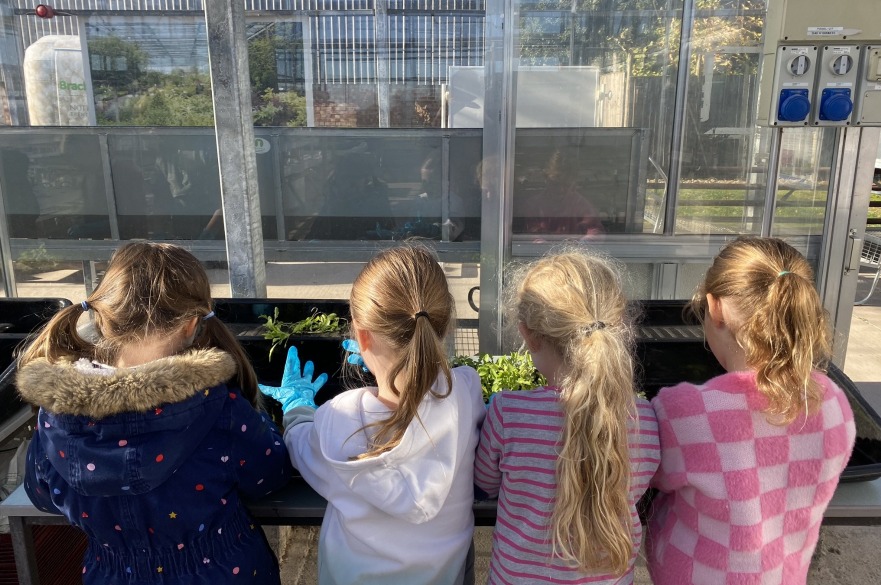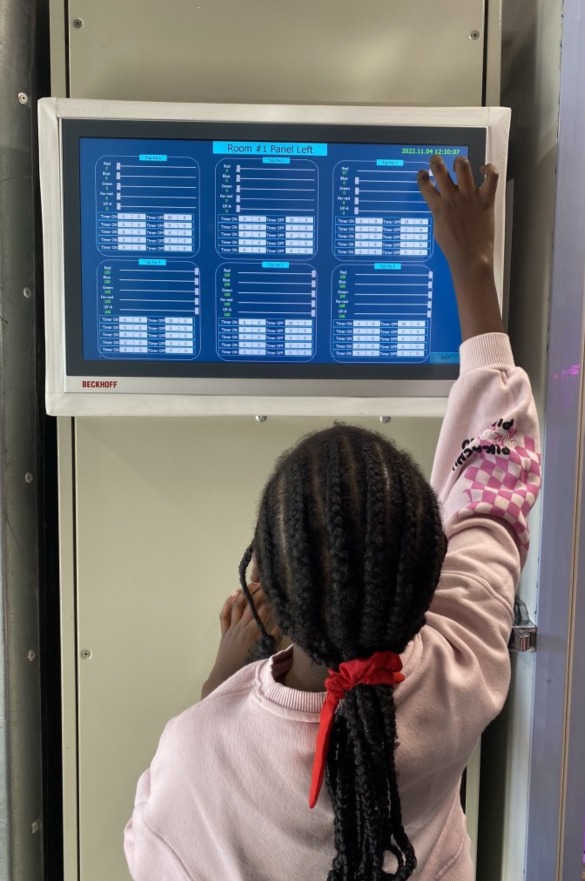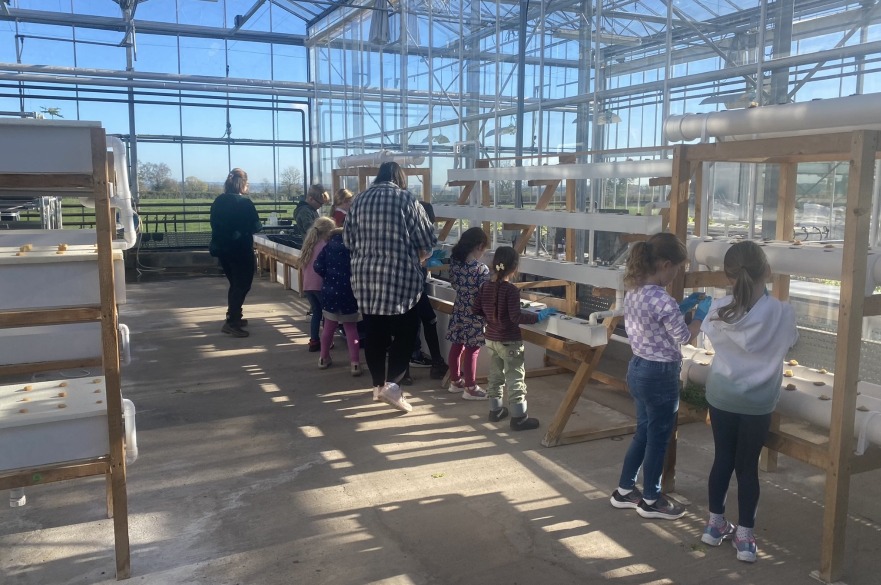Primary school pupils grow their passion for plants at NTU
Eco Warriors visited Brackenhurst Campus’ glasshouses and vertical farm to get their hands dirty and learn about sustainable agriculture.
Published on 16 January 2023
Categories: Environment and sustainability; School of Animal, Rural and Environmental Sciences;

A group of students from Nottinghamshire primary school, St Edmund Campion Catholic Voluntary Academy, paid a visit to Brackenhurst Campus to learn about sustainable agriculture, innovative farming and hydroponics at Brackenhurst’s glasshouse complex and vertical farming facilities.
The students involved in the visit are the primary school’s Eco Warriors – two representatives from each year group between Year 1 and Year 6, who work to make their school a greener place.

A pupil learns how to use the glasshouses digital equipment.
Led by Agricultural Sciences PhD candidate, Xanthea Heynes, the pupils took part in a number of activities, including washing plant roots, transplanting plants into hydroponic and aeroponic systems and sowing microgreen seeds.
“Through hands-on activities, the children learnt about innovative farming methods. They learned that vertical, hydroponic, and controlled environment farming can provide environmental benefits, whilst increasing food production within urban areas and countries lacking agricultural land”, Xanthea explained.
“Such methods can save 99% of land and 95% of water compared to conventional farming, something which all of the children remembered and shared with their classmates at a school assembly the following week.”
Xanthea is currently in her first year of PhD research, focussing on how block-chain technology can be used in the agri-food supply chain. We asked Xanthea how this school visit links with her research: “The vertical farming facilities are run by the Sustainable Agriculture Research Group – led by Professor Chungui Lu – of which I am a part of.
“My PhD is focused on transparent and sustainable agri-food supply chains. Increasing local food production reduces food miles and assists in the development of a transparent food supply chain.”

Primary school pupils transplanting plants into hydroponic systems on a recent visit to the Brackenhurst Campus' glasshouses.
When asked if she thinks it’s important to engage with younger audiences about topics such as sustainable agriculture and developing technologies, Xanthea agreed, elaborating: “There’s a gap in school curriculums regarding food and farming. Young people are not often given the opportunity to engage with farming, unless they have already been brought up in that environment.
“I think it is important to actively connect children and young people to this field – it’s essential that younger audiences understand where their food comes from and the environmental impacts of producing that food.
“There are many inspiring and purposeful jobs across the food and farming sector which young people are unaware they could follow as a career.
“The same applies for developing technologies and computer sciences. It also could inspire children to learn about future farming and innovative technologies.”
Xanthea continued, discussing why she feels it’s useful for universities to engage with younger audiences in general: “Universities as centres of research should have an aim of making science accessible to all – including younger audiences – to inspire and increase learning opportunities, particularly for those who may not have the option to move into higher education.
“More importantly, universities have the resources to help engage wider audiences actively participate in public conversations about scientific research and the implications of such research on society and the environment.”
“Whether through disseminating research, holding events, public debates, or engaging with young people. This is useful on a much greater societal level.”